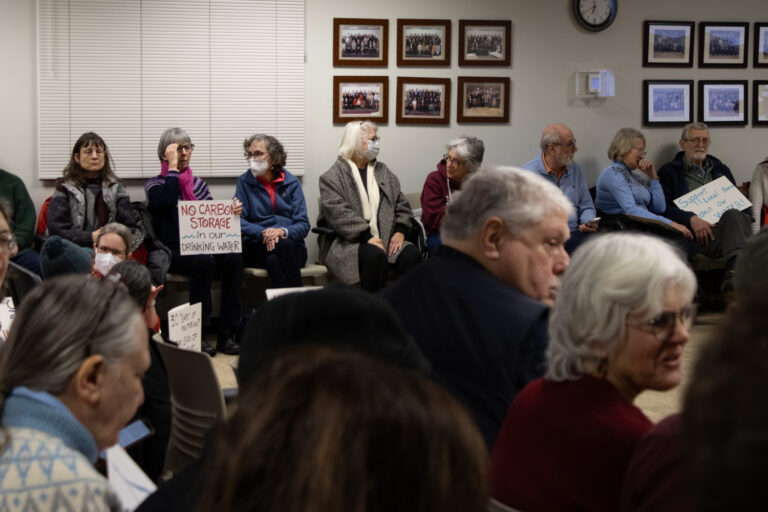SPRINGFIELD – Two bills that would ban carbon sequestration under the Mahomet Aquifer and other sole-source aquifers in Illinois passed out of their respective House and Senate committees last week.
The legislation would amend the state’s Environmental Protection Act to implement a total ban on carbon sequestration under, in or around a sole-source aquifer, like the Mahomet Aquifer, which provides clean drinking water to nearly one million east-central Illinois residents.
“We want to make sure that there is no point in no time in the present moment or any future moment where this water source is risked because of corporate need to store toxic waste,” said Rep. Carol Ammons (D-103), who sponsors the House bill (HB 3614).
Carbon sequestration is a technology that has become increasingly presented as a solution for companies to reduce their carbon emissions by storing a fluid form of carbon in deep underground wells. It is particularly popular in Illinois due to the state’s unique geology. Federal tax credits also incentivize its use.
But leaks have occurred at carbon storage facilities, and environmental advocacy groups and community members don’t feel the risk of a leak near their only source of drinking water is worth the potential benefits the technology offers.
“While we’re poised to lead the way in carbon capture technologies, our progress must be balanced with an unwavering commitment to protecting our essential resources and safeguarding the health of our residents,” said Sen. Paul Faraci (D-52), sponsor of the Senate bill (SB1723), in a written statement March 20.
Rep. Brandon Schweizer (R-104), says he, and other cosponsors of the House bill, worked with the organizations Prairie Rivers Network and Eco-Justice Collaborative on the measure.
“It’s been awesome to see the different groups coming out and wanting something done,” he said. “To be able to protect our drinking water and to be able to have a hand in that is… a great feeling.
Both bills have several Democratic and Republican cosponsors, and carbon sequestration bans have received significant bipartisan support at the local and state government level. In January, Champaign County Board members voted to approve a zoning ordinance amendment to pause all carbon sequestration in the county for 12 months, allowing the board time to develop a more comprehensive, and potentially permanent, ban.
Ammons said the reason for such widespread involvement in this issue is simple: “People understand the very fundamental issue. We must have clean water, and that’s the bottom line here.”
The bills will need to undergo critical readings, discussions and votes on both the House and Senate floors before they go to Gov. JB Pritzker for consideration.
Some legislators are skeptical of whether the governor would sign the bills. But Schweizer said the support for the bill is strong enough.
“I think even if he doesn’t sign it, we have enough support that we’d be able to get it passed anyways,” he said.
Pritzker signed the Safe CCS Act last July, which limits the implementation of carbon sequestration in the state, but the act did not include any protections for sole-source aquifers, including the Mahomet Aquifer.
The Senate bill, sponsored by Faraci and chief cosponsor Sen. Chapin Rose (R-51), mirrors the House bill and has made similar progress in the Senate.
Protecting the Mahomet Aquifer has been a years-long undertaking in central Illinois, including the fight for the designation of one portion of the aquifer as a sole source in 2015. The legislation under consideration is the result of months of collaborative efforts among citizens, scientists, advocacy groups and politicians across both district and party lines.
“The fight isn’t over,” said Rose in a written statement on March 20. “We must keep pushing to protect our clean water.”

